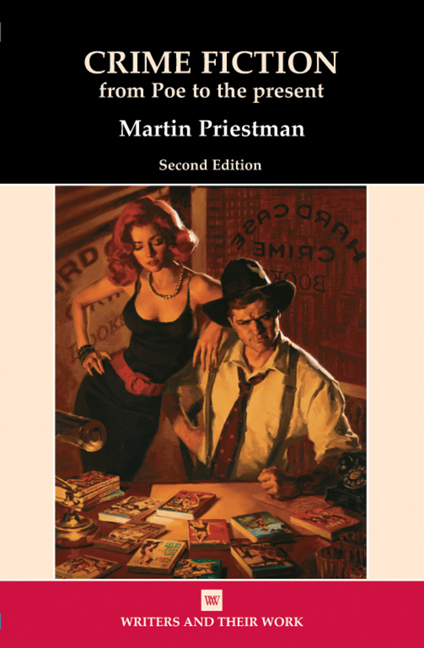Book contents
- Frontmatter
- Contents
- Acknowledgements
- A Chronology
- Introduction
- 1 The Detective Whodunnit from Poe to the First World War
- 2 The Detective Whodunnit from Christie to the Present
- 3 The Noir Thriller
- 4 The Hero-Thriller
- 5 Private Eyes: The Detective Thriller
- 6 Serial-killer Fiction and Other Developments
- Conclusion
- Notes
- Select Bibliography
- Index
2 - The Detective Whodunnit from Christie to the Present
- Frontmatter
- Contents
- Acknowledgements
- A Chronology
- Introduction
- 1 The Detective Whodunnit from Poe to the First World War
- 2 The Detective Whodunnit from Christie to the Present
- 3 The Noir Thriller
- 4 The Hero-Thriller
- 5 Private Eyes: The Detective Thriller
- 6 Serial-killer Fiction and Other Developments
- Conclusion
- Notes
- Select Bibliography
- Index
Summary
Arguably, the prewar impulse to comment explicitly on the genre's essential artificiality, and to mix it up with other kinds of moral, emotional and political concern, had to die down before an acceptably stable way of transmuting the strengths of the Holmes-like short story into the novel could be found. Hence, despite many partial precedents, it was only after the FirstWorld War that the British whodunnit novel came fully into its own. With The Mysterious Affair at Styles (1920), Agatha Christie established a pattern of extraordinary resilience. A murder during a gathering at a country house provides enough intertwined characters with enough possible motives to fill a novel, albeit a short one, needing little else to keep it going by way of change of scene or much elaboration of character. A few outside forays apart, the action and dramatis personae are as it were frozen in time and place by the murder, as in a snapshot, allowing a picture of a single social group, ‘typical’ even if in crisis, to develop slowly and with satisfying completeness.
While the book's detective, Hercule Poirot, also proved highly resilient, his character is less crucial to the overall effect than the pattern of shifting suspicion by which the case is unravelled. It is, however, important that he is a thoroughly respectable figure, able to call on police support despite some occasional shortlived mockery, and not personally involved with any of the suspects beyond a broad concern to avoid unnecessary scandal about the generally upper-middle-class society they represent. While all these traits can be found at times in Holmes, Poirot and his many successors are far less wildly impressive figures: indeed, the device most often used to differentiate them from their more demonic precursors is an apparently ineffectual or even buffoonish exterior, represented in Poirot's case by his short stature, baldness, physical pernicketiness and inescapable foreignness. (While traditional British attitudes could be relied on to regard a French accent as inherently absurd, the role of ‘gallant little Belgium’ in the recent Great War added a more positive element, as perhaps did Christie's own early enthusiasm for French detective fiction such as Leroux's.)
- Type
- Chapter
- Information
- Crime Fictionfrom Poe to the present, pp. 20 - 32Publisher: Liverpool University PressPrint publication year: 2013



